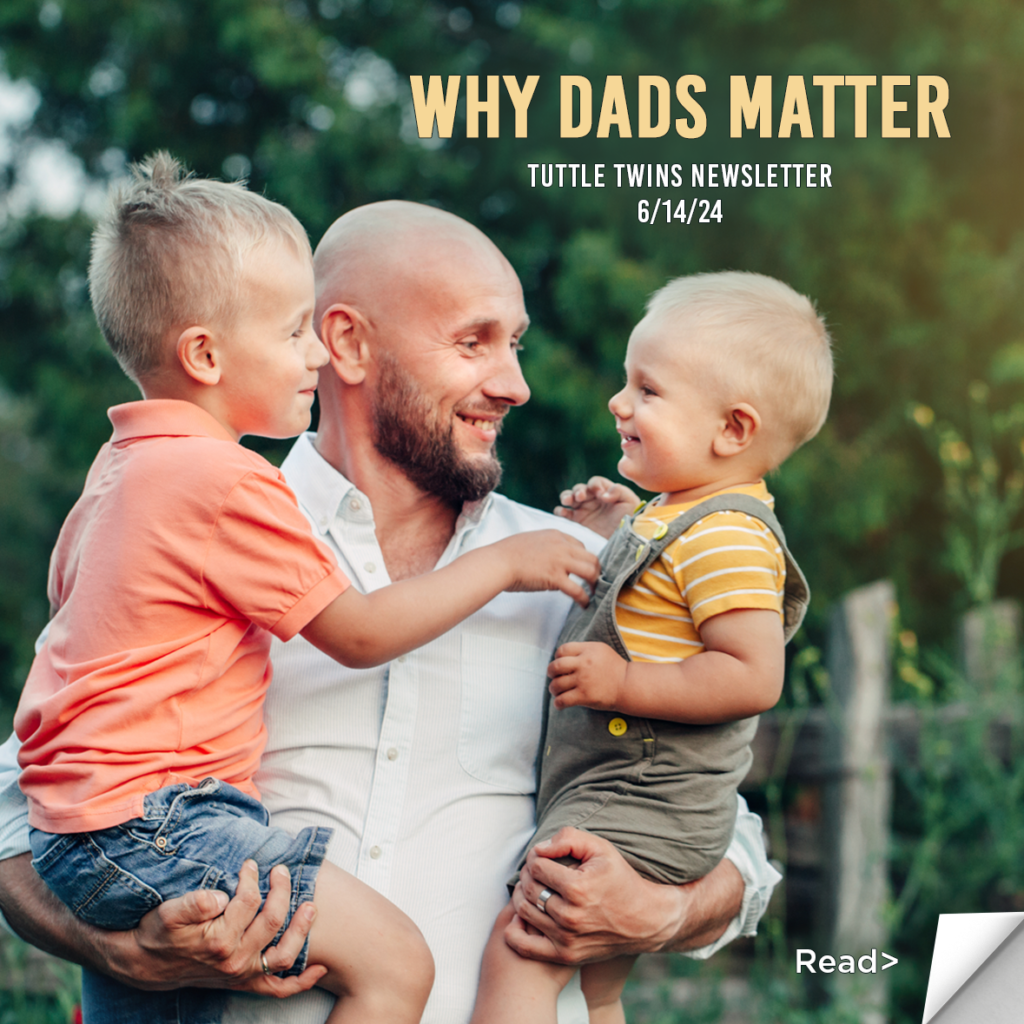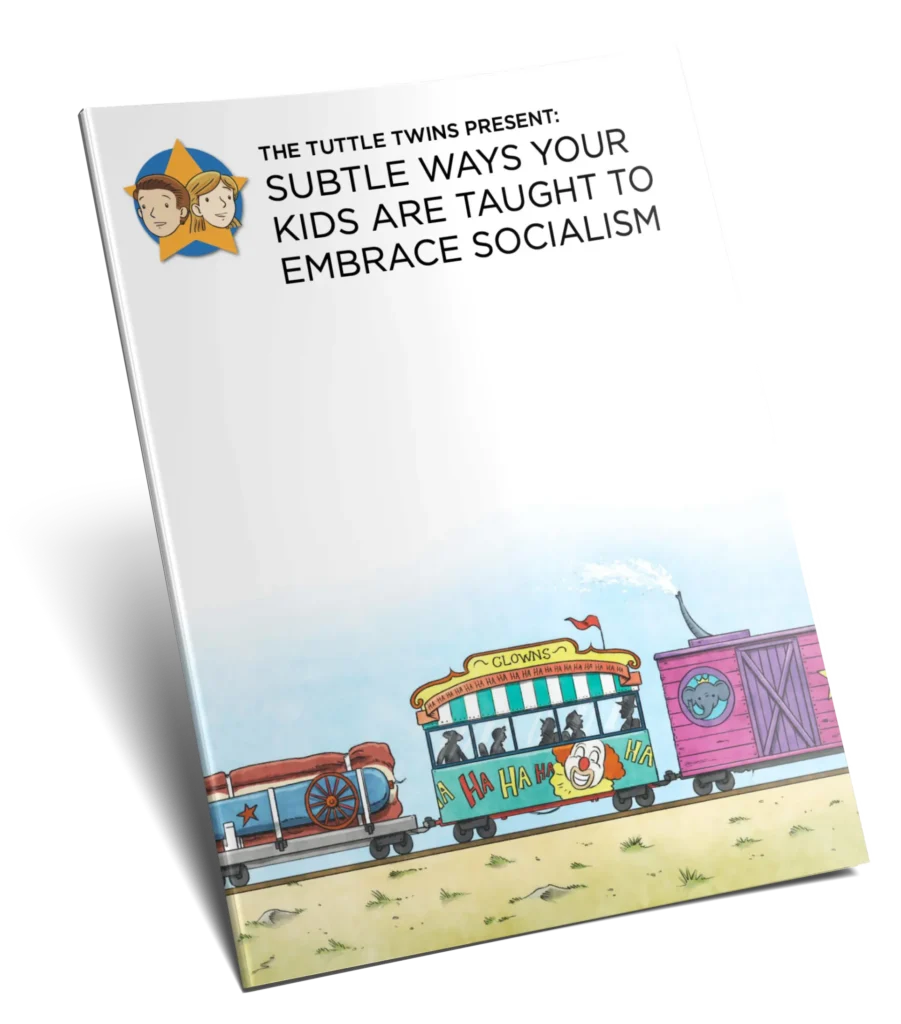
Happy Friday! And Happy Father’s Day!
Are you old enough to remember when TV dads were portrayed as pillars of wisdom and strength?
Characters like Ward Cleaver, Mike Brady, and Andy Griffith set the standard for fatherhood with their level heads and respectability. They were the people their kids could always go to for sage advice when the world around them seemed to be falling apart.
Fathers were once depicted as the bedrocks of the family—figures to be looked up to and respected.
Today? Not so much.
For the last several decades, the depiction of fathers in media and entertainment has consistently spiraled.
Maybe it started with Al Bundy and Homer Simpson, but since the ’80s, the sitcom dad has become nothing more than a punchline—the bumbling, clueless, lazy parent who stumbles through the scene scratching his beer belly while his wife and kids roll their eyes and look knowingly at each other.
Sure, we can be choosy about what kind of media we allow our kids to consume, but this shift isn’t just about TV; it’s a symptom of a broader societal trend.
Research by Erica Scharrer at UMass Amherst shows that while fathers in the 1950s and 1960s were depicted as serious and competent, starting in the 1980s, they began to be portrayed as foolish and incompetent.
By the 2000s and 2010s, dads were shown as humorously foolish in over 50% of relevant scenes, up from just 18% in the 1980s and 31% in the 1990s.
We’re living in a world that’s increasingly anti-family and, specifically, anti-father. Along with the messaging that dads don’t matter (or often that women and children are actually better off without dads), the state stands ever-ready to swoop in and assume the role of surrogate father by providing financial support and co-parenting through welfare programs and public education.
The world has largely adopted the narrative that fathers are simply optional accessories to the lives of their children.
But decades of fatherlessness have shown us something else.
Consider the statistics. The US Census Bureau reports that one in four children now live without a father in the home.
The consequences? Staggering:
- Higher Risk of Poverty: Kids without dads are almost four times more likely to be poor.
- Increased Behavioral Problems: Fatherless kids are twice as likely to drop out of high school and are at a higher risk of ending up in jail.
- Emotional and Psychological Impact: These children are more likely to struggle with depression, anxiety, and self-esteem issues. They often have a hard time forming healthy relationships. A father’s absence leaves a gaping hole that’s tough to fill.
These aren’t just numbers—they’re a loud, clear message about the irreplaceable role fathers play in the healthy development of children.
Dads offer more than financial support; they provide emotional stability and a unique perspective that kids need in order to thrive.
Fathers help build a child’s sense of security and guide them through life’s ups and downs in ways that can’t easily be replicated or replaced.
And it’s not just the way fathers are depicted.
There’s another layer to this issue that’s been quietly bubbling under the surface for years—how we treat boys in our society.
When my kids were little, I started to notice the clothes available for them. For little girls, the options were often emblazoned with phrases like “Girl Power!” or “Silly boys, dinosaurs are for girls!” At first, it seemed pretty harmless, maybe even empowering, but then I thought, what if the roles were reversed?
Imagine a little boy’s shirt saying, “Silly girls, trucks are for boys!” The uproar would be deafening.
This kind of messaging, however subtle, sends a clear signal to our boys—and they’ve been listening.
There is a cumulative psychological impact on a generation of boys who grow up seeing dismissive or rude messages about their sex and negative portrayals of men—specifically fathers—in nearly all media and entertainment.
What does this do to their self-esteem? How does it shape their identity and their future roles as men and fathers?
Studies have shown that boys who are exposed to negative gender stereotypes can suffer from lower self-esteem and higher rates of behavioral issues. They’re more likely to disengage in school and less likely to pursue their interests with confidence.
That’s really terrible!
It’s Father’s Day weekend—a perfect time to reflect on and celebrate the crucial role that fathers play in our lives.
Dads provide more than just a paycheck; they’re mentors, protectors, and guides. Their presence (or absence) has a profound impact on the development and well-being of their children.
The government, no matter how hard they try, can never truly replace a father’s role. No welfare program, teacher, or after-school program can match the love, guidance, and presence of a dedicated dad.
Are we doing everything we can to protect the vital role of fathers and ensure our boys grow up knowing they’re valued, capable, and irreplaceable?
Not only do our books help kids learn how to think critically, they also teach the principles and ideas that have been proven to lead to human flourishing.
And that includes the way men and dads are depicted. Mr. Tuttle is always portrayed as a strong, wise, and capable man who his wife and children can always look up to and trust.
We always want to show the vital role of fathers and positive male role models in creating healthy, prosperous, and peaceful societies. We believe that our future generations depend on it.
Happy Father’s Day to all the amazing dads out there. We’re grateful for you!
— Connor

